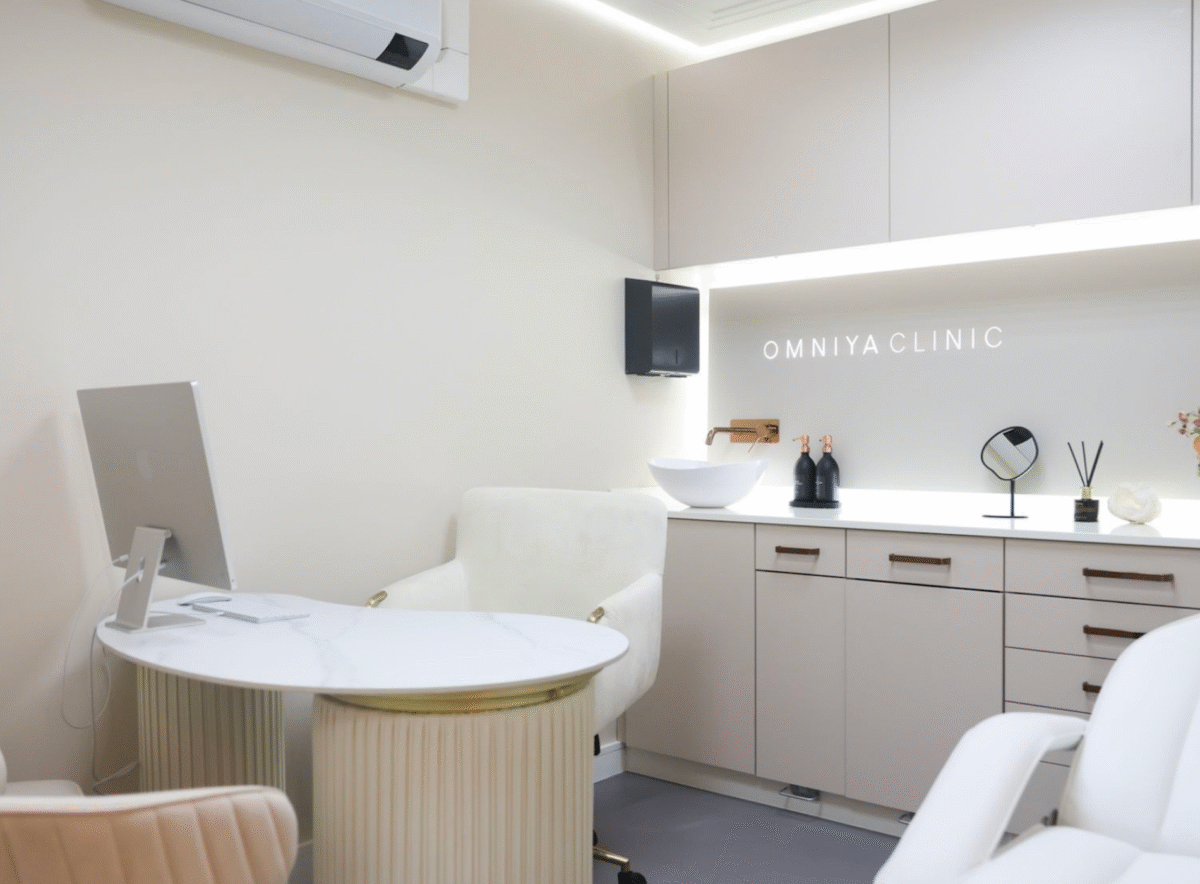3a Montpelier Street, Knightsbridge, London, SW7 1EX
020 7584 4777
[email protected]
- Treatments
- Injectables
- Hormone Therapy & Medical
- Facials & Beauty
- Skin Machines & Lasers
- Concerns
- Prescriptions
- The Clinic
Urinary incontinence, the involuntary leakage of urine, is common, especially after childbirth or around menopause, but it’s not something you have to live with. It can range from light leaks when you cough or exercise to sudden, urgent urges to urinate.
At Omniya Clinic, we take a root-cause medical approach, assessing hormonal balance, pelvic floor function, urinary tract health and lifestyle factors to restore comfort and control.

Urinary incontinence refers to the involuntary leakage of urine, which can occur for a variety of reasons – from weakened pelvic floor muscles to hormonal changes, overactive bladder signals or nerve-related issues.
There are several main types:
Symptoms can range from a few drops to larger leaks, but all forms of incontinence are valid reasons to seek assessment and support – it’s a medical issue, not just a lifestyle inconvenience.

Urinary incontinence often results from a combination of physical, hormonal and lifestyle factors that affect bladder control. Understanding these can help guide the right treatment.
Seek urgent medical attention if you experience visible blood in urine, fever or flank pain, severe pelvic pain, or sudden incontinence accompanied by leg weakness or numbness.

While bladder control issues become more common with age or after menopause, they’re not inevitable, and with the right treatment, most people see clear improvement.
Systemic HRT can improve overall menopausal wellbeing, but local vaginal oestrogen is often more effective for urinary and vaginal symptoms. It helps restore tissue strength, elasticity and comfort. Your clinician will advise whether local or systemic HRT (or both) are suitable.
Many people see pelvic floor improvements within 6-8 weeks, with continued gains over several months.
Local oestrogen can relieve bladder or vaginal symptoms within weeks, while bladder training or medication may help control urgency and frequency in a similar timeframe.
Even a modest weight reduction can reduce pressure on the pelvic floor and bladder, helping minimise leaks and urgency.
Learn more about structured support via our weight loss consultations.
It’s less common but can occur, especially after prostate surgery or with overactive bladder.
Our clinicians offer discreet evaluation and onward management through a GP Consultation

During your consultation, we will advise you on the best treatments and products to use at home.
*Available with participating practitioners